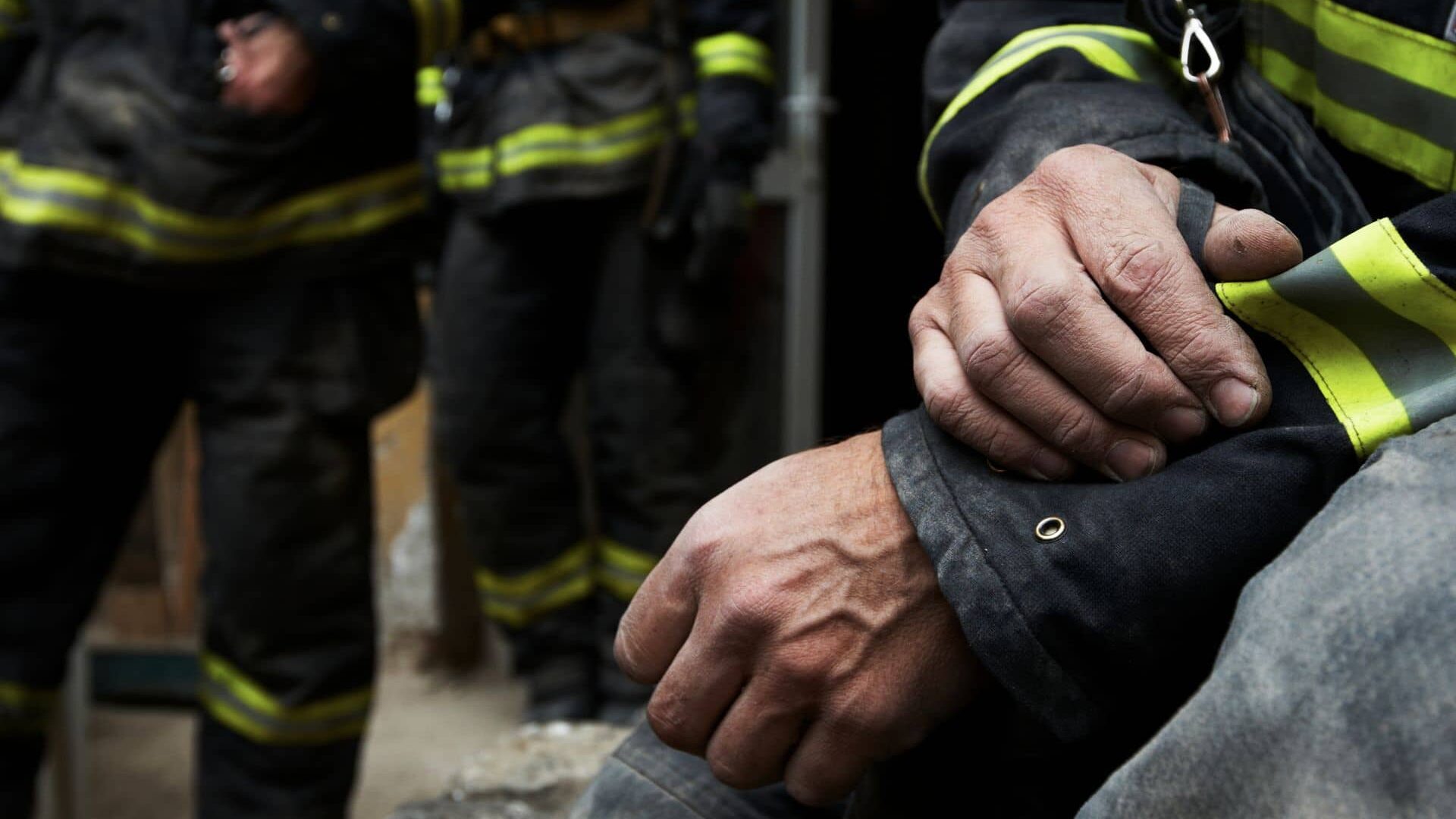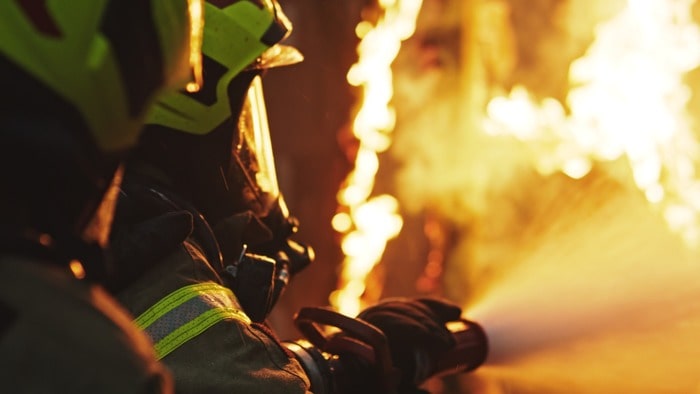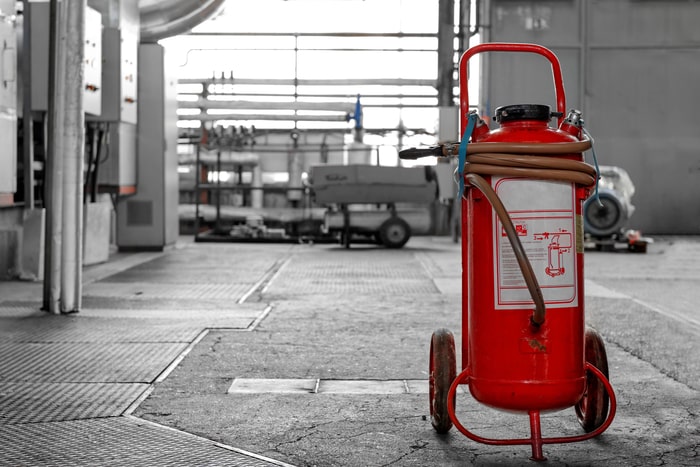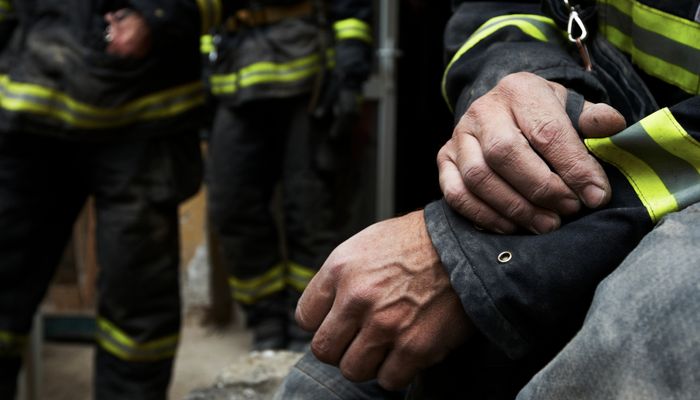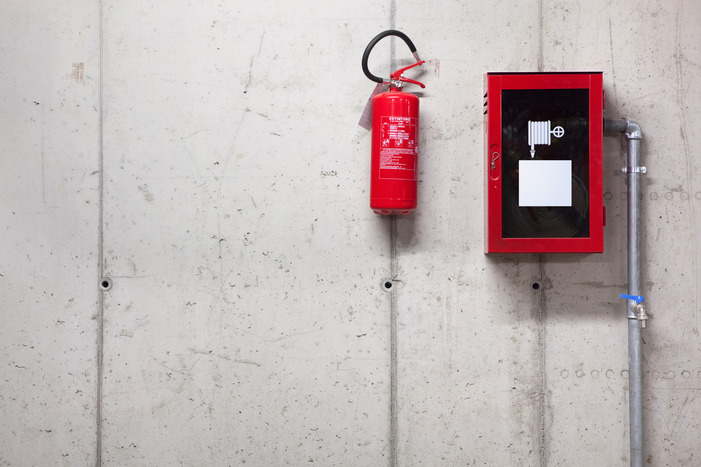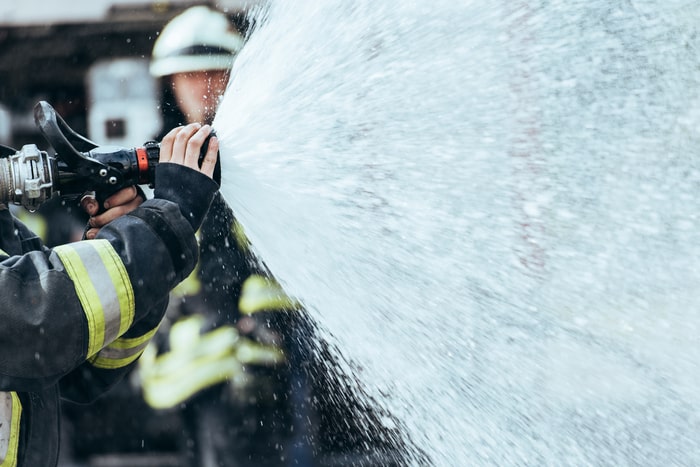New York F-01 Certified Fire Watch Guards
Contents
- 1 New York F-01 Certified Fire Watch Guards
- 1.1 What Is an F-01 Certificate of Fitness?
- 1.2 When Is an F-01 Fire Guard Legally Required?
- 1.3 F-01 vs. Other Fire Watch Certifications: Cutting Through the Red Tape
- 1.4 How to Get F-01 Certified: Your Ticket to NYC Fire Safety Compliance
- 1.5 F-01 Fire Guard Duties: More Than Just Walking Around
- 1.6 The Real Math: Guard Costs vs. FDNY Fines in NYC
- 1.7 Spotting Real F-01 Guards in a City Full of Fakers
- 1.8 Keeping Your F-01 Certification Fresh in NYC
- 1.9 FDNY F-01 Pitfalls: Where Even Smart New Yorkers Stumble
- 1.10 Finding Real F-01 Guards in NYC’s Jungle of Pretenders
What Is an F-01 Certificate of Fitness?
Picture this. You’re managing a Brooklyn warehouse when the fire alarm conks out. Just a glitch, right? Wrong. In the five boroughs, that little red light going dark means big trouble. Fast. That’s where the F-01 Certificate of Fitness comes in, your legal lifeline when systems fail.
So what exactly is this golden ticket? Simply put, it’s the FDNY’s mandatory certification for fire guards during system failures. Think of it as your building’s insurance policy against fiery disaster. Without it, you’re playing with fire in a city that doesn’t mess around with safety. The paperwork traces back to FDNY Fire Code Section 401.3 and 901.6. Bureaucratic? Sure. But skip it and you’ll wish you hadn’t.
Who Needs This Badge of Honor?
Not every bodega or brownstone needs one. But if your property meets these conditions, listen up:
- Buildings with dead sprinklers or alarms for 4+ hours straight
- Construction zones in occupied high rises (we’re looking at you, Midtown)
- Any spot where the FDNY slaps an impairment notice
Imagine this scenario. A Chelsea art gallery’s sprinkler system fails during renovation. The manager panics, calls some uncertified guy from Craigslist. Bad move. FDNY rolls up for a random check and… yikes. Shut down orders. Five figure fines. The whole nine yards.
Now the smart version. Same gallery, same crisis. But they hire an F-01 certified pro through us. The guard arrives faster than a dollar slice disappears. They document everything by the book, patrol like clockwork. When FDNY arrives? Nods of approval. Gallery stays open. Disaster averted.
See, in this concrete jungle, cutting corners burns you. Literally. Our F-01 guards aren’t just paper pushers; they’re your first responders when systems bail. They know every borough from the Bronx to Staten Island like their own backyard.
Why risk it? Get real certified coverage before you’re in the hot seat. Contact us now for guards who actually know their FDNY rules.
When Is an F-01 Fire Guard Legally Required?
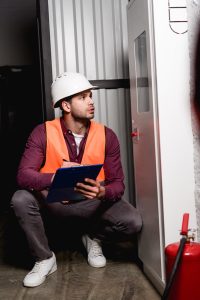
New York doesn’t give second chances when fire safety’s on the line. One minute you’re sipping coffee in your Queens office, the next you’re scrambling because the alarm panel’s flashing red. That’s when the clock starts ticking. The infamous 4 Hour Rule isn’t some urban legend; it’s the law that’ll make or break your wallet.
The Stopwatch Starts Now
Here’s the deal straight from FDNY headquarters. The moment any of these systems go down, you’ve got exactly 240 minutes to comply:
- Sprinkler systems (including partial floor outages)
- Fire alarm monitoring (that pesky “trouble” beep means business)
- Smoke control systems in high rises (especially those shiny new FiDi towers)
But wait, there’s more. Even if your systems work fine, these situations still demand F-01 guards:
- Construction in occupied buildings (yes, even that “minor” lobby renovation)
- Overcrowded events where heads exceed the certificate of occupancy
- Temporary heating setups during winter concrete pours
Take this real world mess. A Williamsburg brewery hosted a rooftop party last summer. They figured a few extra bodies wouldn’t hurt. Until the fire marshal showed up. Turns out exceeding occupancy by 50 people triggers the same rules as a dead sprinkler system. The owner’s face? Priceless. The $12,000 fine? Even more so.
The Small Print That Costs Big
Now here’s where most Manhattan suits get tripped up. That “4 hour grace period” only applies to small spaces under 50,000 square feet. Got a whole floor offline in that new Hudson Yards skyscraper? Zero hours. That’s right. You need guards before the first worker even grabs their hard hat.
Consider the smarter approach. A Tribeca law firm’s alarm went kaput at 3 AM. Their facilities manager had our number on speed dial. By 3:30, an F-01 guard was walking the halls. When the fire department popped in at 9 AM? Nothing but compliments. The partners never even knew there was an issue.
Bottom line. In a city where time is money, those four hours vanish faster than a yellow cab at shift change. Don’t gamble with compliance. Get protected now before the clock runs out.
F-01 vs. Other Fire Watch Certifications: Cutting Through the Red Tape
Navigating NYC’s fire safety certifications is like trying to decode the subway map after they’ve changed the routes. You’ve got your F-01, F-03, F-04, S-95; enough alphabet soup to make any property manager’s head spin. But here’s the thing: picking the wrong one is like showing up to a Brooklyn Nets game with Yankees tickets. It just won’t work.
The Certification Showdown
Let’s break down how the F-01 stacks up against the competition:
- F-01 (The Gold Standard): Required when fire protection systems are impaired. Valid for 3 years. Requires 40+ hours of FDNY-approved training. This is your go-to for construction sites and high-rise emergencies.
- F-03 (The Event Specialist): For public assembly spaces like concert venues. Only good for 1 year. An 8-hour course gets you certified, but it won’t cut it for system impairments.
- S-95 (The Supervisor): For overseeing sprinkler systems during impairments. More technical, but doesn’t replace the need for F-01 guards on patrol.
Here’s where it gets real. A SoHo art gallery owner learned this the hard way last winter. Their sprinkler froze, so they hired F-03 guards for their weekend exhibit. Seemed legit until the FDNY inspection. Turns out frozen sprinklers require F-01, not event staff. The $8,000 fine hurt worse than the January temperatures.
Why F-01 Reigns Supreme
The F-01 isn’t just another piece of paper. It’s the most comprehensive certification because:
- It covers both fire watch patrols AND system impairment situations
- The training includes actual FDNY-approved emergency response protocols
- Guards learn to complete the complex FDNY Fire Watch Log (Form FW-101)
Picture this done right. A luxury condo on the UES had both a sprinkler outage and a private fundraiser. Smart management hired both F-01 AND F-03 guards; each handling their specialty. When the fire department did a surprise inspection? They actually complimented the setup. Now that’s how you do it.
Don’t play certification roulette with your property. Our guards carry proper F-01 credentials and know exactly when other certifications might be needed. Get the right protection before you’re stuck explaining to the fire marshal why you “cheaped out.”
How to Get F-01 Certified: Your Ticket to NYC Fire Safety Compliance
Getting your F-01 certification isn’t exactly like applying for a MetroCard; the process requires more than just swiping your credit card. But don’t let that scare you. With the right preparation, you can navigate FDNY’s requirements smoother than a crosstown bus during rush hour.
Who Can Apply?
Before you even think about heading down to 9 MetroTech Center (that’s FDNY headquarters, for the uninitiated), make sure you check these boxes:
- At least 18 years old; no exceptions
- English fluent enough to understand safety commands
- Clean record: certain violations can disqualify you
- Employer sponsorship for some applicants
The Paper Chase
Gathering documents is where most applicants hit their first speed bump. You’ll need:
- Two forms of ID (driver’s license plus passport or birth certificate)
- Original Social Security card
- Letter from employer if you’re company-sponsored
- Proof of address (no, that scribbled note won’t cut it)
Pro tip: Make copies of everything. The FDNY doesn’t care if your dog ate your paperwork.
The Big Test
Here’s what trips up about 30% of first-time takers:
- 20 multiple-choice questions in 30 minutes
- Need 14 correct answers to pass (that’s 70% for those who hated math)
- Focus areas: Fire Code Sections 401 and 901
- No fancy calculators, just your brain and maybe a lucky pencil
A recent applicant from Long Island City learned the hard way. Showed up thinking it would be common sense questions. Two days later, he was back with highlighted code books and a nervous twitch. Don’t be that guy.
The Final Steps
Assuming you pass (and you will if you study), here’s what comes next:
- Pay the $25 exam fee (cash or money order only)
- Get fingerprinted (yes, like you’re joining the NYPD)
- Wait 2-4 weeks for your physical certificate
- Start working legally after receiving your wallet card
Total cost? About $100 when you factor in fingerprints and travel. That’s less than some people spend on brunch in the West Village.
Of course, there’s an easier way. Our guards are already fully certified and ready to work today. Skip the hassle and get compliant protection without the paperwork nightmare.
F-01 Fire Guard Duties: More Than Just Walking Around
Think being an F-01 fire guard is like one of those security guys who naps in the lobby? Think again. In this city, our guards work harder than a deli counter guy during lunch rush. When systems fail, we become the human safety net between order and chaos.
The Daily Grind
Here’s what an actual shift looks like for our certified professionals:
- Patrols every 30 minutes – not when they feel like it, not “when they remember”
- Detailed log keeping using FDNY-approved FW-101 forms (no scribbles on napkins)
- Hazard spotting from blocked exits to suspicious smells (yes, that includes weed from the construction crew)
- Emergency response if things go sideways, our guards are first responders
Take last month at a Midtown construction site. Our guard Javier noticed a flickering junction box during his 2 AM round. Turns out it was arcing onto some insulation. Shut it down, called the super, avoided what could’ve been another “construction site fire” headline.
The Paperwork Matters
Those logs aren’t just bureaucratic nonsense. They’re your legal lifeline if something happens:
- Must include exact times (military format, none of this “around 3ish” nonsense)
- Require physical signatures (electronic won’t cut it with FDNY)
- Need to be stored for 3 years minimum (no “the dog ate my fire watch logs”)
We had a client in DUMBO who learned this the hard way. Their cheap uncertified guard faked the logs. When a small electrical fire broke out? FDNY fined them $15,000 for falsified records on top of the violation.
Why Our Guards Stand Out
It’s not just about checking boxes. Our team brings:
- Neighborhood-specific knowledge (try finding all the exits in a Greenwich Village brownstone)
- Bilingual capabilities (because “fuego” is Spanish for “we’ve got problems”)
- Actual emergency experience (not just certificate holders)
Don’t settle for warm bodies. Get guards who treat your property like their own. Real protection starts here.
The Real Math: Guard Costs vs. FDNY Fines in NYC
Let’s talk numbers, because in this town, the only thing sharper than the skyline is the FDNY’s penalty system. Hiring proper F-01 guards might seem pricey until you see what non-compliance really costs. Spoiler alert: it makes Manhattan rent look reasonable.
Breaking Down the Rates
Here’s what you’ll actually pay for certified protection:
- Basic F-01 guard: $35-$50/hour (with 4-hour minimums)
- Emergency same-day service: $60-$75/hour (because crisis doesn’t make appointments)
- Overnight/weekend premiums: Add 15-20% (sleep is precious in the city that never sleeps)
Now compare that to the alternative. A Brooklyn warehouse owner we know tried saving $280 on a Sunday shift. The FDNY caught their uncertified guard during an inspection. The fine? $7,500. Plus they still had to hire our team to avoid daily repeat violations.
The FDNY’s Price List No One Wants to Pay
Here’s what non-compliance really costs:
- First offense: $5,000 minimum (about 100 guard hours wiped out instantly)
- Repeat violations: $10,000+ per day (yes, per day)
- Willful neglect: Criminal charges (hello, court dates)
We crunched the numbers for a client in Financial District last quarter. Their potential fine exposure during a 5-day sprinkler outage? $52,000. Actual cost for our certified team? $4,800. Some math even a CUNY freshman could ace.
The Hidden Costs You’re Not Considering
Beyond the fines, bad decisions create:
- Insurance premium hikes (20-30% increases aren’t uncommon)
- Project delays (FDNY can shut down entire job sites)
- Reputation damage (nobody wants “FDNY violation” in their Google reviews)
Our advice? Budget for compliance like you budget for Port Authority tolls. It’s not optional, it’s just the cost of doing business here. Get protected properly before the inspectors come knocking.
Spotting Real F-01 Guards in a City Full of Fakers
In a town where you can buy fake Rolexes on Canal Street and “designer” bags from trunk sales, you better believe there’s shady operators selling fire watch services. Don’t get burned by imposters who couldn’t find a fire extinguisher if it hit them in the head.
The FDNY’s Official Check
First thing’s first, every real F-01 guard has credentials you can verify:
- Physical wallet card with raised FDNY seal (no photocopies accepted)
- Unique 7-digit COF number (Certificate of Fitness ID)
- Expiration date clearly printed (none of that “good through whenever” nonsense)
Last month, a Queens property manager almost hired a guy with a laminated card that looked legit…until someone noticed the expiration date said “02/31”. There’s no February 31st, genius.
3 Must-Ask Questions
Before letting anyone patrol your property, grill them like a halal cart chicken:
- “Can I see your active F-01 card right now?” (If they hesitate, red flag)
- “What’s your FDNY license number?” (Real guards rattle it off instantly)
- “How many impairment jobs have you worked?” (Newbies aren’t necessarily bad, but experience matters)
We took over a job in the Bronx where the previous “guard” turned out to be the contractor’s cousin. His training? Watching firefighter movies. The FDNY wasn’t amused when they discovered this during an inspection.
Why Our Guards Pass Every Test
When you hire through us, you get:
- Pre-verified credentials (we check before they ever hit your site)
- Digital copies of all certifications sent in advance
- Guards who actually know the FDNY inspectors by name
Don’t play credential roulette with your property’s safety. Get verified pros who won’t fold under FDNY scrutiny.
Keeping Your F-01 Certification Fresh in NYC
That F-01 card in your wallet isn’t like a MetroCard; you can’t just add money when it runs low. FDNY certifications expire faster than a bodega sandwich, and letting yours lapse means starting from scratch. Here’s how to stay current without getting caught in bureaucratic hell.
The Renewal Timeline
Mark these dates in your calendar like they’re Yankees opening day:
- Every 3 years: No exceptions, no grace period
- 90-day window: Can renew starting 3 months before expiration
- Deadline day: Your certification dies at midnight, not 11:59 PM
A Chelsea construction supervisor learned this the hard way last summer. Thought he had until “the end of the month.” FDNY disagreed when they checked his credentials on the 31st at 3 PM. His crew had to stop work for two weeks while he retested.
The Painless Renewal Process
Do it right and it’s smoother than a fresh bagel with cream cheese:
- Complete the FDNY COF-APP-1 form (available online since 2019, no more trips to MetroTech)
- Submit your $15 renewal fee (credit cards finally accepted, welcome to the 21st century)
- Wait 10 business days for your new card (tracking number provided)
But here’s where people mess up. That “no retest required” perk only applies if you renew before expiration. Let it lapse even one day? Back to square one with the full exam process.
Why Our Team Never Loses Certification
We handle renewals differently:
- Automated tracking system flags expiring certifications 120 days out
- Dedicated compliance officer manages all paperwork (no lost forms in some super’s truck)
- Backup guards always available during renewal transitions
Don’t gamble with expiration dates. Let our certified team handle your fire watch needs without the renewal headaches.
FDNY F-01 Pitfalls: Where Even Smart New Yorkers Stumble
In a city where we’ve mastered squeezing into subway cars and parallel parking tiny spaces, you’d think we’d have fire watch compliance down pat. Yet every week, otherwise sharp property owners get nailed for the same avoidable mistakes. Don’t be the next cautionary tale at FDNY roll call.
The #1 Offender: The 4-Hour Fantasy
This myth won’t die: “We’ll just fix it before four hours.” Meanwhile in reality:
- HVAC contractors swear it’s “a quick fix” (it never is)
- Building supers underestimate inspection times (every time)
- Alarm companies promise “remote reset” (until they can’t)
Remember that new Williamsburg hotel last winter? Their engineer swore the boiler room smoke detector would be back online in two hours. Three days later, they’d racked up $28,000 in fines before calling us. The repair? Needed a part from New Jersey. Obviously.
Paperwork Problems That Cost Thousands
FDNY doesn’t accept “trust me” as documentation. These logbook errors trigger fines faster than a yellow cab runs red lights:
- Missing patrol times (that “about 3:30” won’t fly)
- Illegible signatures (doctor handwriting belongs in hospitals)
- White-out or corrections (start a fresh page, it’s cheaper than fines)
We took over for a Midtown office where the previous guards used pencil “to save trees.” The fire marshal treated those logs like scratch paper. $9,500 later, they switched to our digital reporting system.
The Invisible Mistakes
Some slip-ups don’t show up until disaster strikes:
- Guards without site-specific training (knowing the F-01 doesn’t mean knowing your building)
- Failure to notify FDNY of impairment (they always find out eventually)
- Assuming night shifts don’t need same vigilance (fires don’t punch time clocks)
Here’s the smarter approach. Our guards arrive with building schematics memorized. They file FDNY notifications before their first patrol. And they treat 3 AM with same urgency as 3 PM. Because in this city, compliance isn’t about checking boxes, it’s about actually preventing disasters.
Stop playing fire safety roulette. Get professionals who know every FDNY trap before it snaps shut.
Finding Real F-01 Guards in NYC’s Jungle of Pretenders
Let’s be real, between Craigslist randos and fly-by-night “security” companies, hiring proper fire watch guards in this city feels riskier than eating street meat after midnight. But when your building’s safety and FDNY compliance are on the line, you need the real deal, not some guy who thinks a reflective vest counts as certification.
Why Professional Services Beat the Alternatives
Going pro means more than just checking a box. Here’s what you actually get:
- Guaranteed compliance: Every guard arrives with valid credentials already verified
- Instant FDNY paperwork: We file all required notifications before our guards even reach your site
- 24/7 availability: Because system failures don’t respect business hours
Take the Uptown hospital that tried using their maintenance staff as fire guards last year. Saved $800 on a weekend shift…until the $17,000 fine arrived Monday morning. Their CFO nearly needed medical attention himself.
Spotting Shady Operators
These red flags scream “walk away faster than a Times Square mascot”:
- No physical office address (just a PO box or Gmail account)
- Can’t provide multiple verifiable license numbers upfront
- Prices suspiciously lower than market rate (you get what you pay for)
We recently audited a competitor advertising “$15/hour F-01 guards.” Turns out their “certification” was a Photoshop special. The client who hired them? Currently fighting a stop-work order.
What Makes Our Team Different
When you call us, you’re not just getting a warm body in a vest:
- NYC natives who know every borough’s quirks (try finding all exits in a pre-war Village walkup)
- Bilingual staff covering Spanish, Mandarin, Russian (because “fire” translates the same in every language)
- Actual emergency responders, not just paper-certified guards
Don’t gamble with your property’s safety. Get real F-01 protection that stands up to FDNY scrutiny every time.
